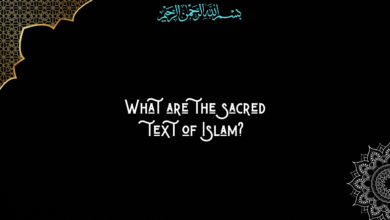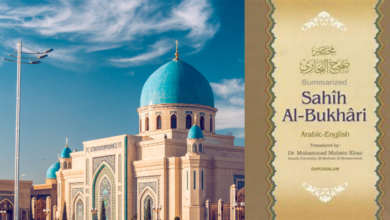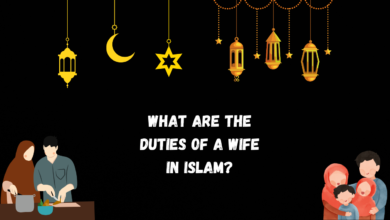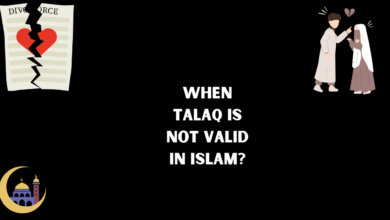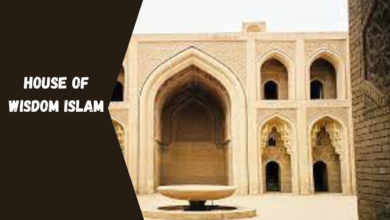Who was the first Muslim?
"The Renaissance of Renewable Energy: Harnessing the Power of the Sun"
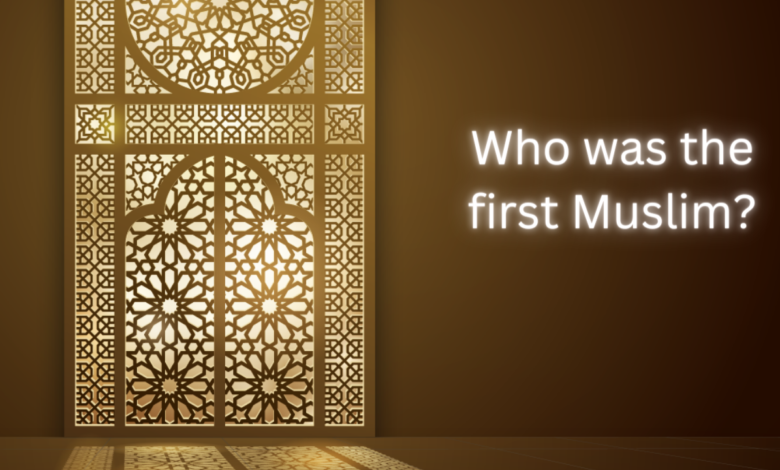
Who was the first Muslim?
The first Muslim in history was Prophet Muhammad. He is considered the final prophet in Islam and received the divine revelation known as the Quran from the Angel Gabriel in the 7th century CE.
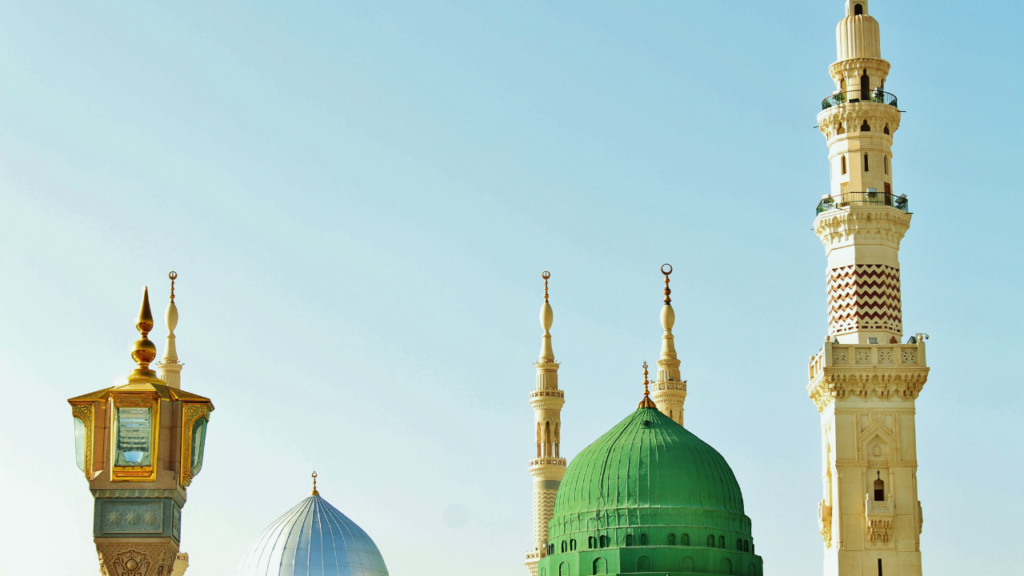
Introduction
The history of Islam is deeply intertwined with the life of its prophet, Muhammad, and the story of the first Muslim is incomplete without understanding his remarkable journey. Muhammad, born in the Arabian city of Mecca in the year 570 CE, was destined to become the central figure in the development of Islam. This article will shed light on the life and character of Prophet Muhammad and explore the pivotal role he played in the birth of Islam.
Early Life and Background
Muhammad’s early life was marked by a series of personal hardships and losses. Orphaned at a young age, he was raised by his grandfather and later by his uncle. Despite these challenges, Muhammad was known for his honesty, integrity, and humility, earning him the nickname “Al-Amin” or the trustworthy. He was actively involved in trade and frequently traveled throughout the Arabian Peninsula, which exposed him to diverse cultures, beliefs, and ideas.
The Revelation
The turning point in Muhammad’s life occurred when he was 40 years old. While meditating in a cave on Mount Hira, just outside Mecca, he received his first revelation from God through the Angel Gabriel. These revelations, which continued for the next 23 years, were eventually compiled into the holy book of Islam, the Quran. The Quran contains the teachings and guidance of God, as conveyed to humanity through Muhammad.
Acceptance of Islam
As Muhammad received these revelations, he began to preach monotheism, denouncing the idol worship that was prevalent in Mecca. His message was met with resistance from the tribal leaders, who saw his teachings as a threat to their power and the city’s lucrative pilgrimage trade. Nevertheless, some individuals recognized the truth in Muhammad’s message and embraced Islam. Among the earliest converts were his wife Khadijah, his cousin Ali, and his close friend Abu Bakr.
Also Check
- Is Milk Halal in Islam?
- How many Wives did Prophet Muhammad (PUBH) have?
- Where are the 25 Prophets of Islam in order?
- Why did Allah Almighty expel Hazrat Adam and Hazrat Eve from Heaven?
- Does Islam use the old testament?
The First Muslims
The title of “the first Muslim” is often attributed to Khadijah, Muhammad’s first wife. Khadijah was a wealthy and respected businesswoman who supported Muhammad emotionally and financially. She was the first person to believe in his prophethood and was unwavering in her faith. Her steadfast support of Muhammad earned her a place of honor in Islamic history.
Another significant figure among the first Muslims was Abu Bakr, a close friend and confidant of Muhammad. He is often referred to as “Al-Siddiq,” meaning “the truthful” or “the one who confirms the truth.” Abu Bakr’s unwavering faith in Muhammad and his mission played a crucial role in the early spread of Islam.
Ali ibn Abi Talib, Muhammad’s cousin and son-in-law, was also among the first converts to Islam. His dedication to the faith and close relationship with Muhammad eventually led to his becoming the fourth caliph in Islamic history.
The Spread of Islam
As Muhammad continued to preach and gather followers, the opposition in Mecca grew stronger. The early Muslims faced persecution, torture, and even death for their beliefs. In 622 CE, faced with mounting hostility, Muhammad and his followers migrated to the city of Medina, where they were welcomed by the residents.
In Medina, Muhammad established a community based on the principles of justice, compassion, and unity. His leadership and the teachings of Islam began to attract more converts, and the Muslim community grew in strength.
Conclusion
While Khadijah, Abu Bakr, and Ali are often mentioned as the first Muslims due to their unwavering faith and support for Muhammad, it is essential to understand that the term “the first Muslim” encompasses the early converts and believers who embraced Islam during its formative years. Muhammad’s journey from a humble merchant to the Prophet of Islam and the guidance he received through the Quran laid the foundation for a new faith that would eventually spread across the world. His life and teachings continue to inspire millions of Muslims, making him a pivotal figure in the history of religion and humanity.

FAQs About Who Was the First Muslim
Who was the first Muslim in history?
The first Muslim in history was Prophet Muhammad. He is considered the final prophet in Islam and received the divine revelation known as the Quran from the Angel Gabriel in the 7th century CE.
When did Prophet Muhammad become the first Muslim?
Prophet Muhammad received his first revelation from Allah (God) through the Angel Gabriel in the year 610 CE while he was meditating in the Cave of Hira near Mecca. This event marked the beginning of his prophethood and his acceptance of Islam.
What is the significance of Prophet Muhammad being the first Muslim?
Prophet Muhammad being the first Muslim is significant because he is considered the model and leader of the Muslim community (ummah). His life, teachings, and actions serve as a guide for all Muslims, and his example is central to Islamic faith and practice.
Was there anyone else who converted to Islam before Prophet Muhammad?
Before the advent of Islam, there were individuals who followed monotheistic beliefs, such as the Hanif tradition, which believed in the worship of one God. However, Prophet Muhammad is recognized as the first to receive the complete and final message of Islam as conveyed in the Quran.
Who were some of the earliest converts to Islam after Prophet Muhammad?
Some of the earliest converts to Islam included his wife Khadijah, his cousin Ali ibn Abi Talib, his close friend Abu Bakr, and others from his immediate family and inner circle. These early converts played crucial roles in the early development of Islam.
What is the importance of the concept of the “First Muslim” in Islam?
The concept of the “First Muslim” underscores the centrality of Prophet Muhammad in Islam. He is not only the first Muslim but also the final prophet, delivering the last divine message to humanity. His life and teachings are integral to Islamic theology and the practice of the faith.
Is being the first Muslim a matter of historical record or faith in Islam?
Being the first Muslim is both a matter of historical record and faith in Islam. Historically, Prophet Muhammad is acknowledged as the first person to embrace Islam. In terms of faith, Muslims believe this as a fundamental tenet of their religion and take it as a matter of faith that he was chosen by Allah as the final prophet.
How did the message of Islam spread after Prophet Muhammad’s conversion?
After Prophet Muhammad’s conversion, he began sharing the message of Islam with others in Mecca. Over time, more people accepted Islam, and it gradually spread throughout the Arabian Peninsula. After the migration to Medina, Islam gained more followers, and through military and diplomatic efforts, it eventually spread beyond Arabia.
Is there any evidence or documentation of Prophet Muhammad’s conversion to Islam?
While there is no physical documentation of Prophet Muhammad’s conversion, Islamic tradition and historical accounts provide detailed narratives of the events leading up to his first revelation and his acceptance of Islam.
Are there any specific rituals or practices associated with commemorating Prophet Muhammad’s conversion in Islam?
There are no specific rituals or practices associated with commemorating Prophet Muhammad’s conversion in Islam. However, his life and the events surrounding his prophethood are celebrated and remembered throughout the year by Muslims through various religious observances, particularly during the month of Rabi’ al-Awwal, which marks his birth.
